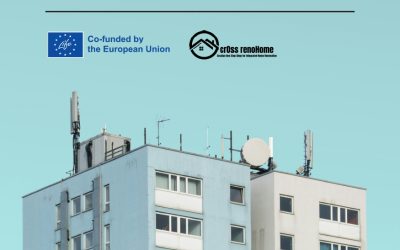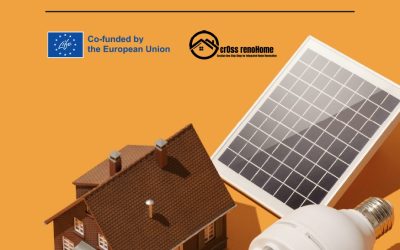This Data Protection Manual delineates the strategies and procedures for the responsible handling of sensitive data within the scope of projects such as renovating family homes and buildings. It’s structured based on the Horizon 2020 FAIR Data Protection Manual (DPM) template, applicable to LIFE Clean Energy Transition projects as well.
The LIFE crOss renoHome project adheres to the FAIR data management concept, ensuring that project data is ‘FAIR’: Findable, Accessible, Interoperable, and Re-usable. These principles guide decision-making without prescribing specific technologies or standards. The DPM isn’t a strict technical implementation of FAIR principles but draws inspiration from them as a general concept.
The project aims to collect information at local and household levels, including personal details like names, ages, professions, education levels, income, energy bill expenses, and addresses from individuals interested in renovating their homes. Handling such data necessitates meticulous attention to privacy, security, and ethical considerations to comply with relevant regulations and protect participants’ rights.
The primary objective of this DPM is to establish robust procedures for the ethical and efficient management of sensitive data. These protocols encompass not only data collection but also storage, access, sharing, and eventual disposal, emphasizing transparency and confidentiality throughout the project’s lifecycle. It serves as a guideline for project personnel, highlighting the importance of respecting individual privacy rights.
cross renoHome – Data Protection
In terms of data collection, the LIFE crOss renoHome project will gather various types of data, including demographic information (such as names, ages, professions, education levels), financial details (income, energy bill expenses), and residential data (addresses).
In accordance with the European General Data Protection Regulation (Directive 95/46/EC), the most sensitive types of data to be considered are those revealing racial or ethnic origin, political opinions, religious or philosophical beliefs, trade union membership, genetic data, biometric data for the purpose of identifying individuals, data concerning health, and data concerning a person’s sex life or sexual orientation. Therefore, the LIFE crOss renoHome project will not utilize this type of data, as it is not deemed essential for the assessments to be conducted.
The project data will primarily be collected digitally through standardized contracts and consultations in the office, as well as through the Marketplace on the project’s webpage. Data will primarily be processed in XLSX, CSV, PDF, or Word DOCX formats to ensure compatibility with various software.
To ensure anonymity, the data will be aggregated. The insights gained from the data will enable the provision of the best possible service for each individual case.
If you’re interested in learning more about this topic, you can read about it in the Data Protection Manual at this link.



